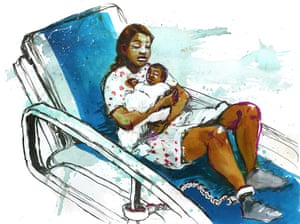Implicit and explicit biases are among many factors that contribute to disparities in health and health care. Explicit biases, the attitudes and assumptions that we acknowledge as part of our personal belief systems, can be assessed directly by means of self-report. Explicit, overtly racist, sexist, and homophobic attitudes often underpin discriminatory actions. Implicit biases, by contrast, are attitudes and beliefs about race, ethnicity, age, ability, gender, or other characteristics that operate outside our conscious awareness and can be measured only indirectly. Implicit biases surreptitiously influence judgment and can, without intent, contribute to discriminatory behavior. A person can hold explicit egalitarian beliefs while harboring implicit attitudes and stereotypes that contradict their conscious beliefs.
Moreover, our individual biases operate within larger social, cultural, and economic structures whose biased policies and practices perpetuate systemic racism, sexism, and other forms of discrimination. In medicine, bias-driven discriminatory practices and policies not only negatively affect patient care and the medical training environment, but also limit the diversity of the health care workforce, lead to inequitable distribution of research funding, and can hinder career advancement.
A review of studies involving physicians, nurses, and other medical professionals found that health care providers’ implicit racial bias is associated with diagnostic uncertainty and, for Black patients, negative ratings of their clinical interactions, less patient-centeredness, poor provider communication, undertreatment of pain, views of Black patients as less medically adherent than White patients, and other ill effects.1 These biases are learned from cultural exposure and internalized over time: in one study, 48.7% of U.S. medical students surveyed reported having been exposed to negative comments about Black patients by attending or resident physicians, and those students demonstrated significantly greater implicit racial bias in year 4 than they had in year 1.
A review of the literature on reducing implicit bias, which examined evidence on many approaches and strategies, revealed that methods such as exposure to counterstereotypical exemplars, recognizing and understanding others’ perspectives, and appeals to egalitarian values have not resulted in reduction of implicit biases.2 Indeed, no interventions for reducing implicit biases have been shown to have enduring effects. Therefore, it makes sense for health care organizations to forgo bias-reduction interventions and focus instead on eliminating discriminatory behavior and other harms caused by implicit bias.
Though pervasive, implicit bias is hidden and difficult to recognize, especially in oneself. It can be assumed that we all hold implicit biases, but both individual and organizational actions can combat the harms caused by these attitudes and beliefs. Awareness of bias is one step toward behavior change. There are various ways to increase our awareness of personal biases, including taking the Harvard Implicit Association Tests, paying close attention to our own mistaken assumptions, and critically reflecting on biased behavior that we engage in or experience. Gonzalez and colleagues offer 12 tips for teaching recognition and management of implicit bias; these include creating a safe environment, presenting the science of implicit bias and evidence of its influence on clinical care, using critical reflection exercises, and engaging learners in skill-building exercises and activities in which they must embrace their discomfort.










